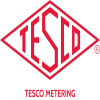Dive Brief:
- Johnson Controls announced Monday that it has signed a joint venture with a clean energy unit of Consolidated Edison, a deal aimed at helping expand the market for smart energy storage control systems developed by the company.
- Consolidated Edison Solutions, a subsidiary of Con Edison Clean Energy Business, will be the exclusive provider of storage to customers of Johnson Controls.
- The falling cost of battery storage paired with smarter grid infrastructure has created an opportunity in all business segments. A report last month concluded residential storage capacity additions grew by 202% from 2016 to 2017 on a MW basis, while non-residential additions grew by a modest 9%.
Dive Insight:
The new joint venture brings Johnson Controls into the ConEd fold, giving the company a wider distribution channel for its energy storage management business and systems. The announcement comes at a time when there is growing interest in energy storage as a way to help use more renewable energy, reduce system peaks and cut energy costs.
The partnership will create "even more opportunity to take advantage of growth in both the behind-the-meter and front-of-meter market," said George Oliver, chairman and CEO of Johnson Controls, who also pointed to the company's five years of energy storage success.
Under terms of the joint venture, Con Edison Solutions will be the majority owner and operating partner. Johnson Controls will participate as a minority owner and will contribute intellectual property it has developed for battery management systems and controls.
Johnson Controls' energy storage business was a separate unit within the company, officials explained to Milwaukee Business Journal, and was unrelated to other operating divisions.
Johnson Controls says its battery management systems allow for "seamless integration" within building systems and easily allow for "peak shaving, frequency regulation, demand management and renewables integration."
While there has been significant growth in storage capacity and interest, particularly for residential solar, a recent report from the Smart Electric Power Alliance (SEPA) concludes the market as a whole remains in the early stages of development.
In 2017, 74% of solar shoppers surveyed said they were also considering a home battery system, according to an EnergySage report released earlier this year.
SEPA also found growing interest in demand response from utilities, which energy storage can help to enable. According to the analysis, utility demand response programs last year enrolled more than 18 GW, helping to highlight additional uses for demand management including soaking up more renewables. In utility DR programs, commercial and industrial customers remain key.















